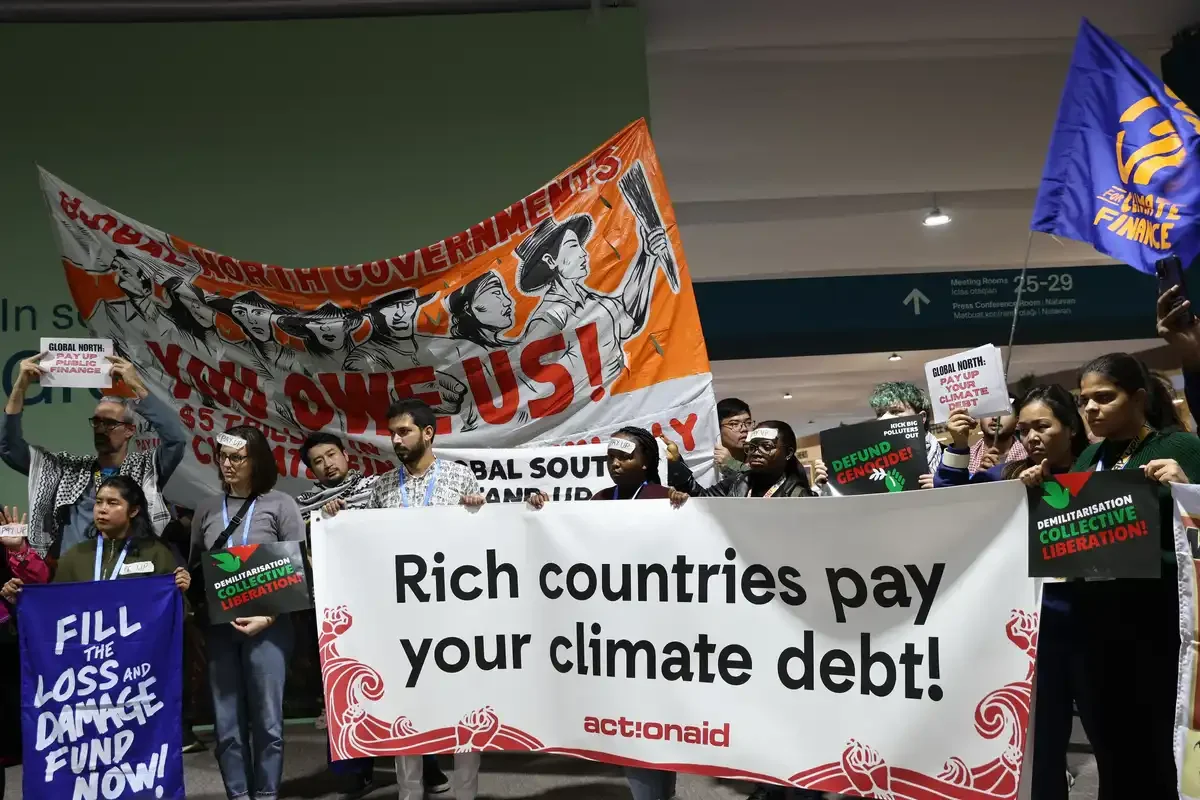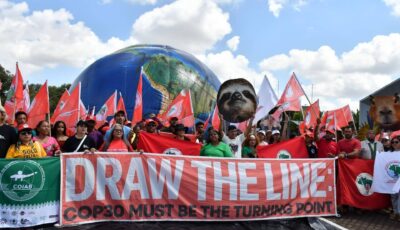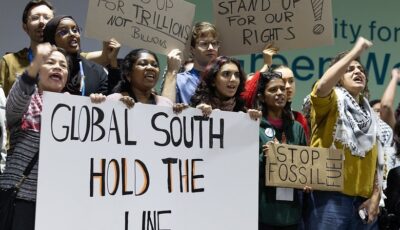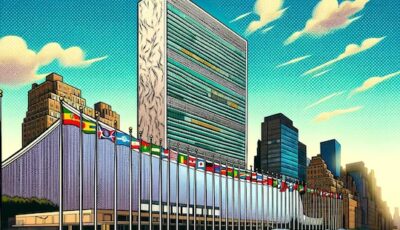A report published Wednesday details how “climate colonialism” of wealthier nations “hijacks” investment and profits from the Global South—and lays out how the world can “move beyond extractive models and build an energy system rooted in equality, justice, care, and collective prosperity.” Brett Wilkins writes for Common Dreams.
The Oxfam International report notes that “the global energy transition stands at a pivotal moment: It can either dismantle the inequalities driving the climate crisis or deepen them. Today, the transition risks reproducing patterns of extractivism and exploitation, with the most marginalized paying the highest price while elites profit.”
“From transition mineral mining to debt burdens and unequal energy access, the current trajectory mirrors centuries of colonial injustice,” the publication states. “A just transition must redistribute power and resources, curb overconsumption, and prioritize dignity and rights for all.”
The report continues:
Today, the warning signs are clear: The global renewable energy transition is being built on unequal foundations. We are witnessing climate inequality inaction: a transition focused on replacing fossil fuels with green alternatives, without questioning the excessive energy use of the richest, while often leaving lower-income communities to bear the greatest costs, including through the harmful impacts of transition mineral mining, inadequate benefit sharing, and global financial and trade systems rigged against their interests. Put simply, the same dynamics that drove historical colonialism are reaemerging in new forms through the green transition.
These patterns of inequality play out both between and within countries. While stark inequalities exist between the richest and poorest within high-income countries too, global inequality is most sharply felt in the Global South, where structural barriers and historic injustices have left entire nations bearing the brunt of the climate crisis and now shouldering the greatest risks in the renewable energy transition.
“Unless the logic underpinning the transition changes, it will continue to replicate the history of extractivism and exploitation,” the report warns. “These inequalities intersect with gender, race, class, age, and other marginalized people or groups, meaning that the costs of an unjust transition fall heaviest on Indigenous peoples, Black communities and other racialized groups, women, workers, peasants, and of course young people and future generations.”
“This concentration of wealth and power is mirrored in patterns of energy use: A small minority live in extreme luxury and overconsume planetary resources, while others still lack basic electricity,” the report’s authors wrote. “If just one year’s energy consumption of the wealthiest 1% were redistributed, it could meet the modern energy needs of all the people in the world without electricity seven times over, while redistributing the consumption of the top 10% global energy consumers could meet the needs of the entire Global South nine times over.”
The report also highlights how a “colonial financial system” plays a key role in perpetuating injustice, noting that “while rich countries can pour billions into their own clean energy transitions, the Global South is left with rising debt, punishing interest rates, and shrinking fiscal space.”
According to Oxfam:
In 2024, high-income countries accounted for roughly 50% of global clean energy investment, and China for 29%, while Africa accounted for just 2%, despite sub-Saharan Africa being home to 85% of all the people in the world without electricity. The inequality is not only in where finance flows, but in how much it costs: Clean energy projects in the Global South face interest rates of 9–13.5%, compared with just 3–6% in richer countries, slowing the pace of the transition. These costs are not inevitable—they reflect a system that prices risk through the racialized lens of colonial legacies. The impact is stark: Powering 100,000 people with clean energy costs about $95 million in advanced economies like the UK, but $139 million (45% higher) in emerging economies such as India and $188 million (97% higher) in African countries such as Nigeria.
How does the Global South reclaim its energy future from climate colonialism? According to the report’s authors, “Rather than treating the energy future as a race with few winners, we must reimagine it as a shared global project.”
“Energy should not be hoarded, withheld, or used as leverage for geopolitical or corporate power,” the report advises. “This structural change requires reparative justice: making rich polluters pay, redistributing resources, confronting overconsumption, and prioritizing the rights of those historically excluded while embracing economic models that put equality, well-being, and ecological limits at the center.
“Tackling inequality is both a moral imperative and an effective strategy for climate mitigation,” the authors stressed, offering the following recommendations:
- Differentiating transition pathways based on historical responsibility and capacity;
- Working toward more equitable energy consumption;
- Reforming trade, investment, and taxation systems;
- Replacing extractive financial models with debt cancellation, grant-based climate finance, and reparations initiatives;
- Safeguarding communities and nature;
- Democratizing energy governance; and
- Adopting an international mechanism at the United Nations Climate Change Conference to ensure policy coherence and accelerate, consolidate, and achieve a holistic just transition.
The UN conference, or COP30—scheduled to begin November 10 in Belém, Brazil—is set to feature the theme of a just transition as a central agenda item.
“There is no single blueprint for a just transition—it will differ across contexts, shaped by diverse histories, knowledge, and needs,” the Oxfam report states. “But all just transitions must share one principle: Energy should serve life, not profit.”
Brett Wilkins is a staff writer for Common Dreams.
Original source: Common Dreams
Image credit: Kiara Worth, United Nations Climate Change




